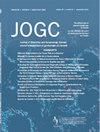Oocyte Cryopreservation Outcomes in Women With Hematological Malignancies Undergoing Chemotherapy—A Systematic Review and Meta-Analysis
IF 2
Q2 OBSTETRICS & GYNECOLOGY
引用次数: 0
Abstract
Objective
Hematological cancers are among the leading malignancies affecting women of reproductive age. Oocyte cryopreservation (OC) is routinely recommended before initiating gonadotoxic treatments. We aim to evaluate OC outcomes in women with hematological cancers undergoing chemotherapy.
Data Sources
A comprehensive literature search was conducted in Medline, Embase, and Cochrane Library until January 2024.
Study Selection
Studies examining fertility outcomes of women undergoing OC before chemotherapy for hematological cancers were included. Comparison groups included healthy controls or patients with other cancers. The primary outcome was the number of mature oocytes frozen per stimulation cycle; secondary outcomes included total cumulus-oocyte complexes, stimulation duration, total gonadotropin dose and fertility outcomes following the utilization of cryopreserved oocytes.
Data Extraction and Synthesis
A total of 14 cohort studies, 2 case-control studies, and 6 case reports involving 858 hematological cancer patients undergoing OC and 2676 comparators were included. The mean mature oocyte yield ranged from 7 to 19 in the hematological cancer group, and 6 to 14 in the comparator groups (mean difference [MD] 0.11; 95% CI –0.10 to 0.33). A comparable number of total cumulus-oocyte complexes (MD 0.09; 95% CI –0.07 to 0.25) and total dose of gonadotropins were found (MD 0.33; 95% CI –0.32 to 0.98). The analysis found a marginally longer duration of stimulation in the hematological cancer group (MD 0.21; 95% CI 0.11–0.31). Also, the hematological cancer group was found to be statistically younger, (MD –1.32; 95% CI –1.85 to –0.79), the difference is not clinically meaningful. Results for subgroup analyses concurred with the main analysis. Fertility and utilization of cryopreserved oocyte data were lacking.
Conclusion
These findings suggest that women with hematological cancers undergoing OC may expect similar oocyte yield compared to women with other cancers or healthy controls. Oocyte quality and pregnancy outcomes following the utilization of cryopreserved oocytes in hematological cancer patients remain unclear and should be the subject of further study.
接受化疗的血液恶性肿瘤妇女的卵母细胞冷冻结果--系统回顾和荟萃分析。
目的:血液癌是影响育龄妇女的主要恶性肿瘤之一。卵母细胞冷冻保存(OC)是常规建议开始性腺毒素治疗之前。我们的目的是评估接受化疗的女性血液癌患者的肿瘤预后。数据来源:在Medline, Embase和Cochrane图书馆进行了全面的文献检索,直到2024年1月。研究选择:包括血液癌化疗前接受卵巢囊肿的妇女生育结果的研究。对照组包括健康对照组或其他癌症患者。主要结果是每个刺激周期冷冻的成熟卵母细胞数量;次要结果包括卵丘总复合物、刺激持续时间、促性腺激素总剂量和使用冷冻卵母细胞后的生育结果。资料提取与综合:共纳入14项队列研究、2项病例对照研究和6份病例报告,涉及858例接受OC的血液学肿瘤患者和2676例比较者。血液癌组成熟卵母细胞的平均产率为7 ~ 19,对照组为6 ~ 14(平均差[MD] 0.11, 95%可信区间[CI] -0.10, 0.33)。总卵丘卵母细胞复合体的数量(MD为0.09,95% CI为-0.07,0.25)和促性腺激素的总剂量相当(MD为0.33,95% CI为-0.32,0.98)。分析发现血液病组的刺激时间稍长(MD = 0.21, 95% CI = 0.11, 0.31)。此外,血液癌组在统计学上更年轻,(MD -1.32, 95% CI -1.85, -0.79),差异无临床意义。亚组分析结果与主分析一致。冷冻保存卵母细胞的生育和利用资料缺乏。结论:这些研究结果表明,与患有其他癌症或健康对照的女性相比,接受OC的血液病女性可能期望相似的卵母细胞产量。使用冷冻保存的卵母细胞治疗血液病患者的卵母细胞质量和妊娠结局尚不清楚,需要进一步研究。
本文章由计算机程序翻译,如有差异,请以英文原文为准。
求助全文
约1分钟内获得全文
求助全文
来源期刊

Journal of obstetrics and gynaecology Canada
OBSTETRICS & GYNECOLOGY-
CiteScore
3.30
自引率
5.60%
发文量
302
审稿时长
32 days
期刊介绍:
Journal of Obstetrics and Gynaecology Canada (JOGC) is Canada"s peer-reviewed journal of obstetrics, gynaecology, and women"s health. Each monthly issue contains original research articles, reviews, case reports, commentaries, and editorials on all aspects of reproductive health. JOGC is the original publication source of evidence-based clinical guidelines, committee opinions, and policy statements that derive from standing or ad hoc committees of the Society of Obstetricians and Gynaecologists of Canada. JOGC is included in the National Library of Medicine"s MEDLINE database, and abstracts from JOGC are accessible on PubMed.
 求助内容:
求助内容: 应助结果提醒方式:
应助结果提醒方式:


